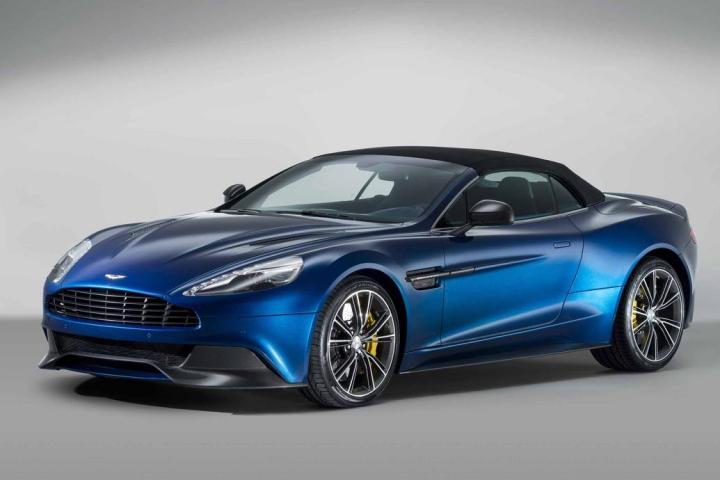
As befits the most British of automakers; Aston Martin is staying old-school. At the launch of its new Vanquish Volante, Aston’s boss announced that the British brand is sticking with V12s and staying away from hybrid powertrains.
This might come as a disappointment to those that hoped Aston Martin would follow up Bosch’s aftermarket plug-in hybrid DB9. However,apparently Aston has its reasons.
Dr. Ulrich Bez, the boss of Aston, said Aston will not have a hybrid anytime in the near future. Dr. Bez told Drive that although he thought it a great technology: “I am a purist and I think a sports car should have as low weight as possible. It should be minimalistic as it can be, and this does not work with hybridization.”
He also expressed concerns about the long-term reliability of hybrid systems in high-end cars. He astutely pointed out that: “the biggest failures in cars these days it is electrical failures. And what we do is make more and more electrical systems and we believe it will be much better.”
While it’s is absolutely true that the drivetrains on the new hybrid supercars like the Porsche 918 Spyder, McLaren P1, or the Ferrari LaFerrari are so baroquely complex that you wouldn’t want to open the engine compartment without a brace of electrical engineers; they are still significantly lighter and more performance oriented than most Aston Martins.
It’s also true that these hybrid hypercars are likely to have more than their share of technical woes, especially if, unlike most hypercars, they actually get driven.
Still lack of a hybrid drivetrain has not stopped British supercars from having their own abysmal reliability record. Though, that might not be the fault of the cavalier engineers but rather the attitude of British auto workers.
In the end, this difference of opinion reflects the different ways companies like Ferrari and Aston Martin approach car building. When Ferrari designs a car, it always focuses on performance and styling – in that order. Only stopping at the end of the day to figure out where it might be able to cram a driver in and whether or not any of the bits will actually work. When it made the LaFerrari, Ferrari started with an F1 car and made it slightly more livable.
Aston, on the other hand, has started with a sports car, and made it awesome. This is why they don’t have mid-engined layouts or all-wheel drive. Aston Martins are sports cars first and supercars second.
Despite his German heritage, Dr. Ulrich Bez seems to understand this old-world British approach. This is why he also announced continued commitment to V12s. A big, smooth V12 has been the heart of the Aston experience for a long time now, with the exception of some lovely V8 Vantages.
While Bez admits Aston will likely have to size its engines down to 5.0-liters – or below – to meet emissions standards he said, “If it comes to a luxury car with emotion, a V12 has something special.” In other words, Bez is reiterating the old saying that, “you gotta dance with them what brung ya.”
He’s right. V12s and Aston Martin go together; and they have always been about more than pure performance. So while hybrid drivetrains might soon be a common sight on other supercars, there is still room for the old-school charm and verve of a naturally-aspirated V12 sports car.


